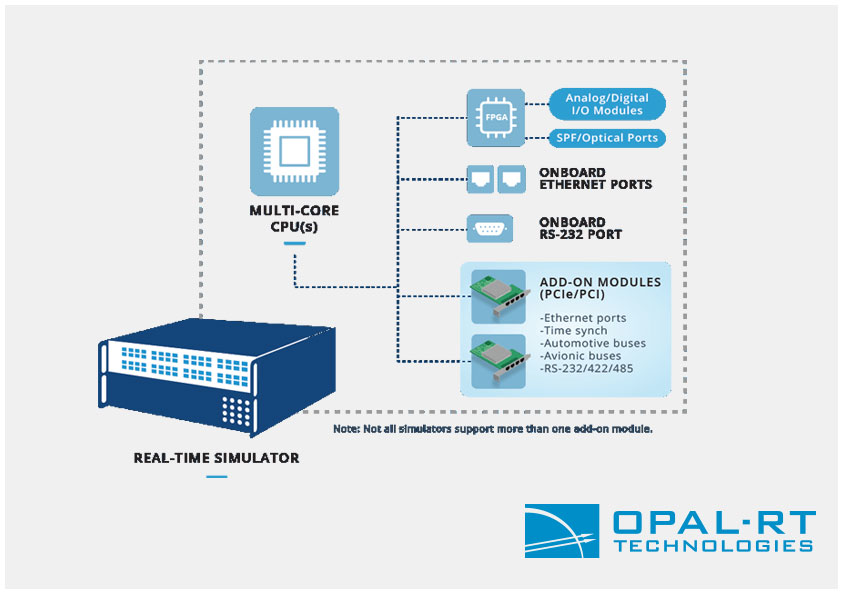Communication Protocols
Nearly every modern engineering system employs some sort of critical, digital communication protocol. OPAL-RT simulators emulate industry-standard communication protocols, enabling users to perform the most realistic real-time simulations possible. Consult our comprehensive list of supported protocols below to learn more!
OPAL-RT’s Real-Time Simulator architecture is designed to leverage standard Commercial Off-the-Shelf (COTS) components to reduce system cost and also increase flexibility for our users.
It is for this reason that most communication protocol software drivers are developed to run directly on a simulator’s CPU(s) without the need for additional hardware. This means that many drivers can be easily activated via software license for our RT-LAB and HYPERSIM simulation platforms.
For communication protocols, such as those used in the Automotive and Aerospace industries, that require specialized hardware, add-on modules have been specifically selected for their Hardware-in-the-Loop (HIL) capabilities. Also, if more functionality, such as additional ethernet ports or precision time synchronization, is required, it can be added via add-on modules, just like with a desktop computer.
To learn more about, which products are required to use a specific Communication Protocol driver, please view that driver’s page from the list above.
It is for this reason that most communication protocol software drivers are developed to run directly on a simulator’s CPU(s) without the need for additional hardware. This means that many drivers can be easily activated via software license for our RT-LAB and HYPERSIM simulation platforms.
For communication protocols, such as those used in the Automotive and Aerospace industries, that require specialized hardware, add-on modules have been specifically selected for their Hardware-in-the-Loop (HIL) capabilities. Also, if more functionality, such as additional ethernet ports or precision time synchronization, is required, it can be added via add-on modules, just like with a desktop computer.
To learn more about, which products are required to use a specific Communication Protocol driver, please view that driver’s page from the list above.

